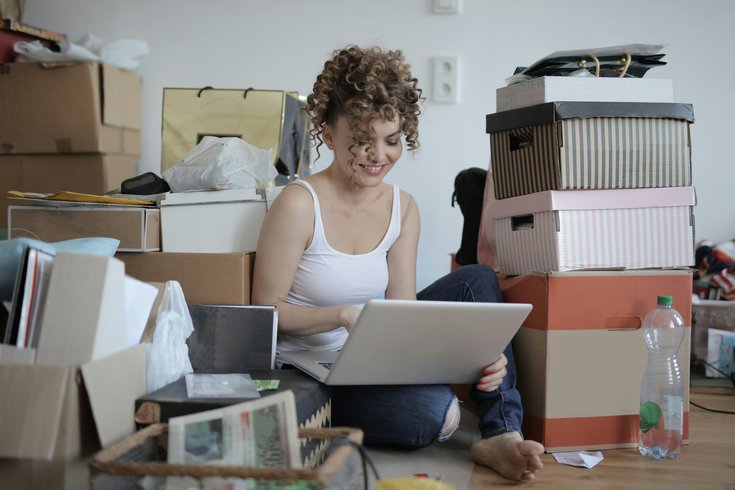
December 25, 2024
 Andrea Piacquadio/Pexels.com
Andrea Piacquadio/Pexels.com
Living with too much stuff has been linked to increased levels of cortisol, the stress hormone, and to feelings of of guilt and shame, research shows. Clutter particularly tends to pile up after the holidays.
New toys and technology, boxes and wrapping paper – clutter tends to accumulate throughout the holidays, increasing stress during what can be a joyful but also hard time for many people.
This year, Americans planned to spend, on average, more than $1,000 on Christmas and other holiday gifts, up from about $900 last year. Holiday retail sales have increased by an average of 4% over the past 18 years, a Gallup poll shows. These presents are piling on top of the more than 300,000 items the average American household already contains.
According to one estimate, a typical move in the United States weighs about 8,000 pounds, the same as an adult hippo. The United States has just over 3% of the world's children but consumes more than 40% of the world's toys. A 2009 University of California, Los Angeles, study found that "cars have been banished from 75 percent of garages to make way for rejected furniture and cascading bins and boxes of mostly forgotten household goods."
At the same time, the UCLA research found that clutter increases levels of cortisol, known as the stress hormone, and is linked to feelings of guilt and shame. Research also shows that clutter impedes focus and the brain's ability to process information. Having too much stuff negatively impacts people's feelings about their sense of home and wellbeing, according to a 2016 study. So, decluttering living space is not just a way to streamline day-to-day life but also a mental health issue, two Philadelphia-area professional organizers said.
"There is anxiety that people have about getting rid of things," said Jennifer Martin, of Spruce Organizing Co. in Philadelphia. The clutter "creeps up on you gradually, like everything. That's, that's how we end up with these dumping grounds," such as the garage, the office, guest bedroom or the former bedroom of the kid who's gone to college, Martin said.
Leading into the holidays, people often experience a "panic" that their homes are messy and not ready for visitors. During and after the holidays, many people wind up with "toys all over the place, and all of the things that everybody gave them," Martin said. "You know, the grandmas gave a little too much stuff, and you don't want to say, 'no.' So what do you do with all of that stuff that the kids have?"
One technique she uses with families is creating a "toy library: It's a gentle way of removing things from your kids with sort of having their permission," Martin said.
Parents and caregivers help children choose what toys to store in a designated closet or space, and a specific amount to have out at any given time. While children are playing with their selection, the adults can surreptitiously give away some of the clutter in the toy library, on a gradual basis, Martin said.
When she is called into homes after the holidays, professional organizer Debra Serota of Sort It Out Philly sees all of the "ridiculous gifts" people have received, such as "a dog toy for somebody who doesn't have a dog."
"A lot of people have, especially after the holidays, a lot of guilt about gifts and holding on to things and making sure that people know they've kept whatever item," Serota said. "And I encourage people to not place that kind of emotion on an item, because you have a finite amount of space in your home – especially in the city where there's very little storage and people live in smaller spaces. You have to make some serious decisions sometimes about what you want to keep and not keep."
People usually feel "a sense of calmness" and reduced stress after they have decluttered and organized a room, or an entire home, Martin said.
"They feel more in control of the space and also of their time," Martin said. "It also gives them the agency to be more intentional about their space, because when you organize a space, you're choosing the things that are most important to you and having those in the forefront."
Once people start to declutter and organize, either on their own or with help, they feel motivated, Serota said.
"Holding onto so many things that have these emotional holds on you, it's not good for you," Serota said. "Giving yourself room to breathe is letting go of some of that."
Serota also has tips for dealing with holiday decorations:
• Look at your calendar now and schedule a day to take all the holiday decor down.
• Block off enough time to complete the holiday cleanup. If not, you may be left with random items left around the house.
• Purchase new containers now so that all of your new and old decorations have a place to be stored.
• Make sure to put your holiday items away in the designated containers for like items.
• Sit back and relax knowing that you are starting the year off right.